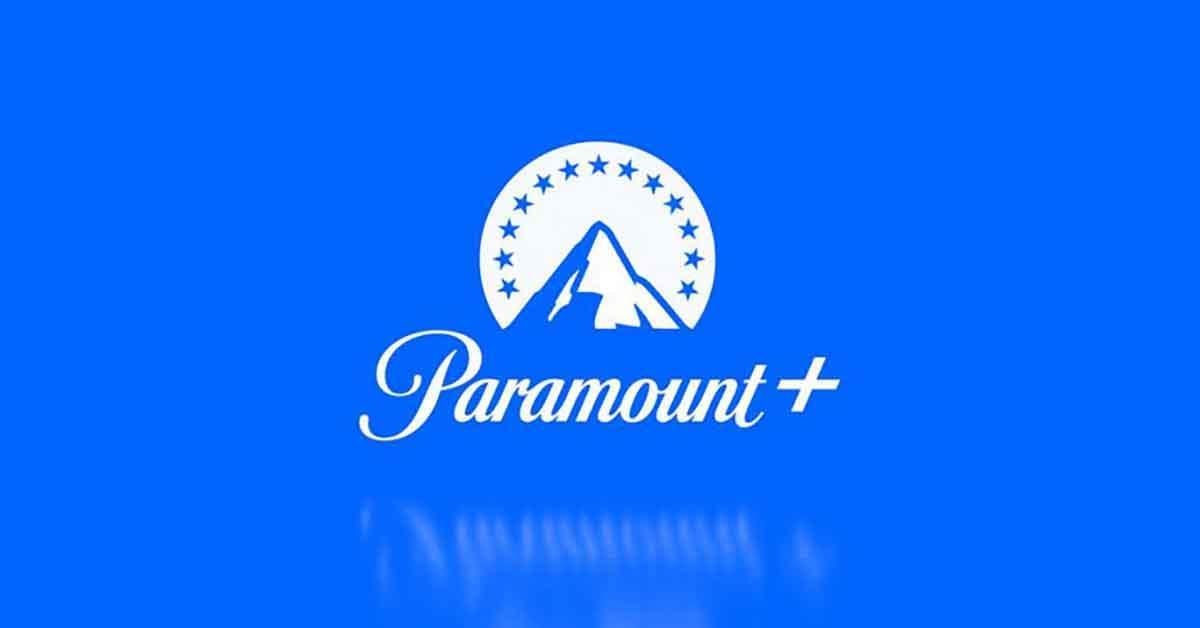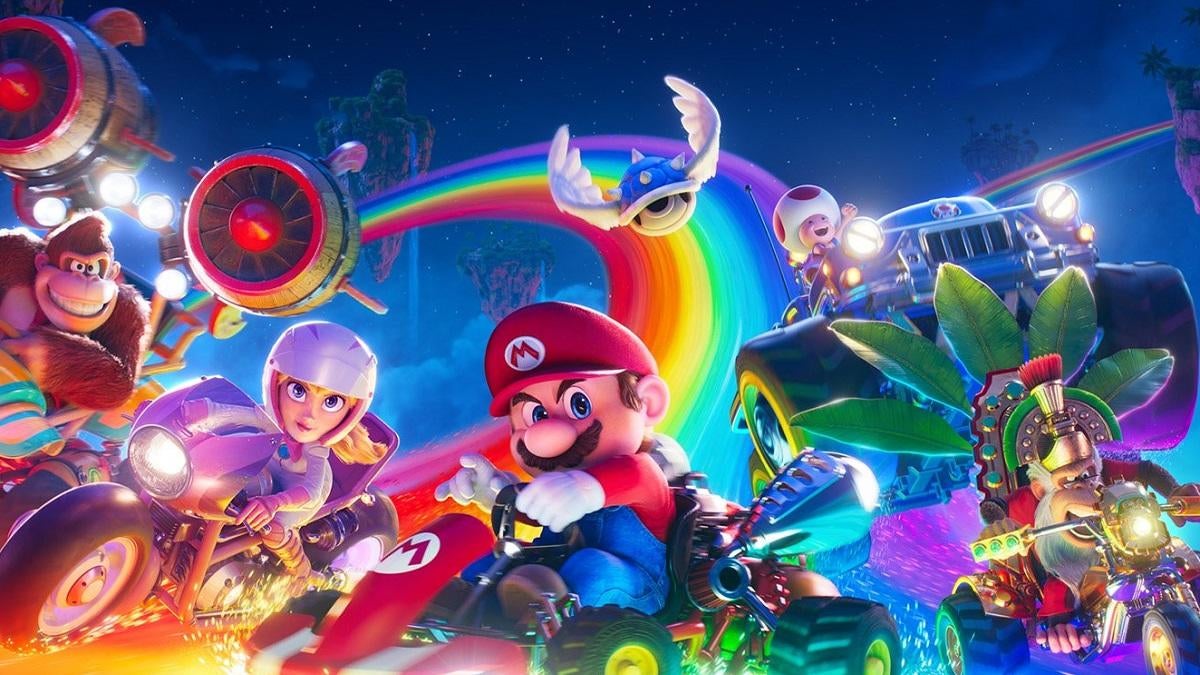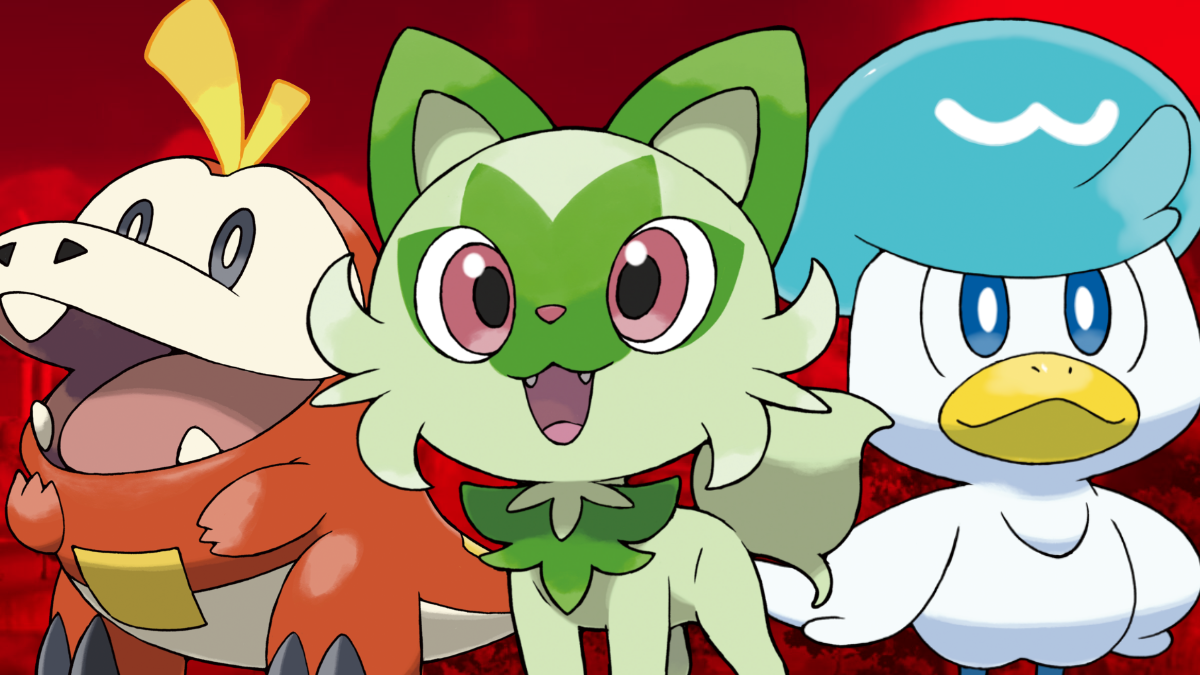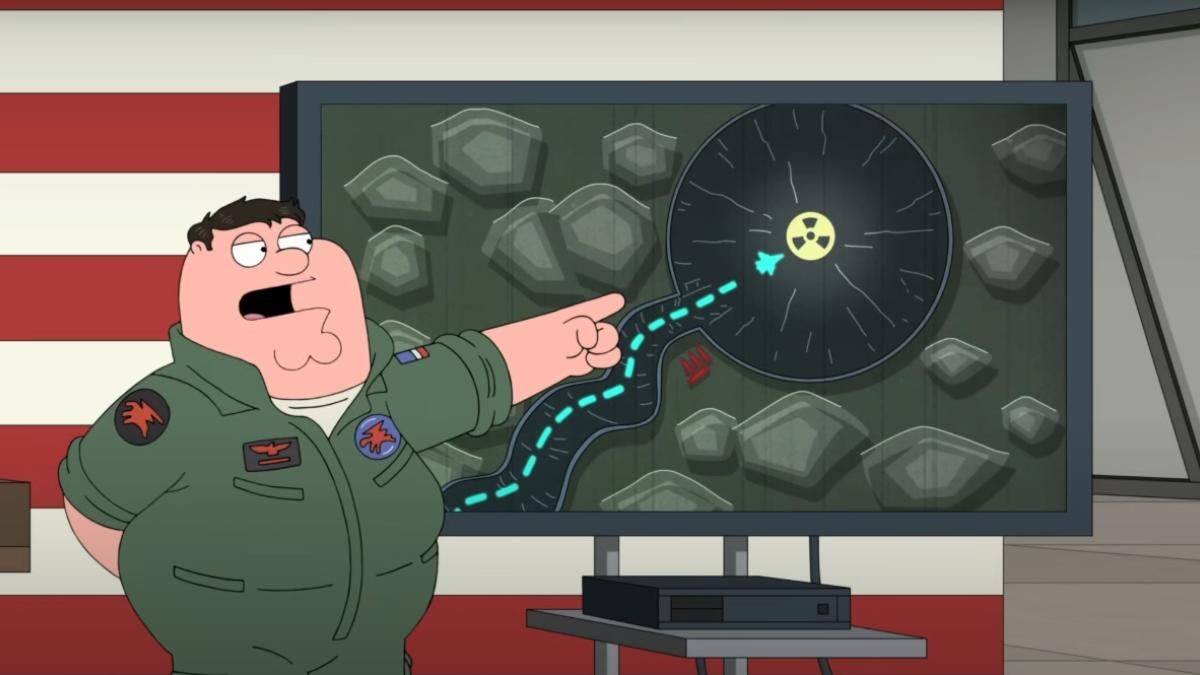V/H/S/94 Filmmaker Simon Barrett Looks Back on the Legacy of the Found-Footage Franchise
In response to the massive financial success of Paranormal Activity, the years following that film's 2009 release saw a number of filmmakers revive the found-footage storytelling format, as the overall lo-fi aesthetic meant that even the smallest of budgets could result in a competent film. In 2012, V/H/S brought together a number of up-and-coming genre filmmakers to craft vignettes under the premise that the characters in the film were literally finding the footage of bizarre and unsettling incidents. Almost a decade later, the series has returned with V/H/S/94, which marks filmmaker Simon Barrett's third outing with the series after having written, directed, and produced segments for the first two installments. V/H/S/94 is now streaming on Shudder.
In V/H/S/94, after the discovery of a mysterious VHS tape, a brutish police swat team launch a high-intensity raid on a remote warehouse, only to discover a sinister cult compound whose collection of pre-recorded material uncovers a nightmarish conspiracy.
ComicBook.com caught up with Barrett to talk about his connection with the series, his biggest goals for his segment "The Empty Wake," and the status of his upcoming sequel to Face/Off with fellow V/H/S alum Adam Wingard.
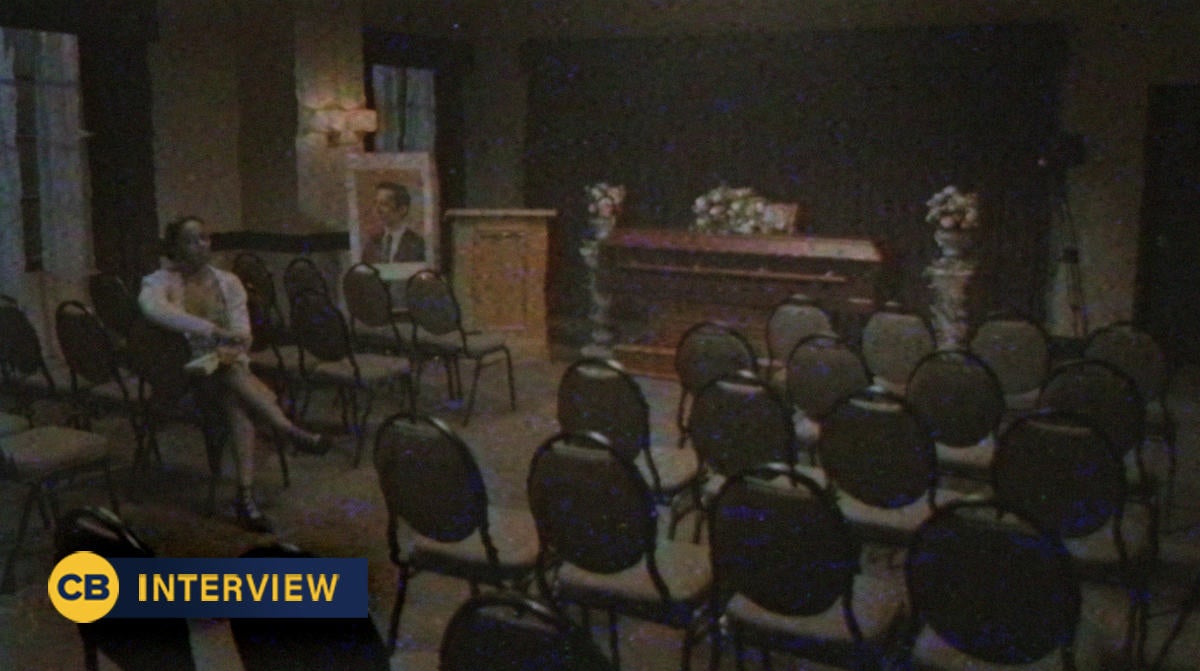
ComicBook.com: You had a screening earlier this week of You're Next and both in-person and on social media, you mentioned how you couldn't have expected a decade ago while making it that it would be playing to sold-out crowds. When it comes to the V/H/S films, what place do these films hold for you emotionally as a filmmaker?
Simon Barrett: Well, speaking sincerely for a moment, these movies are ... The first two V/H/S movies really were, I think, instrumental in getting Adam Wingard and my careers going, initially. We had A Horrible Way to Die and then You're Next. You're Next was our big success that got us the budget for The Guest and got our feet really in the door, in a way, that we could start making a living at this stuff.
But the first two V/H/S movies are dear to my heart because it's from that era of when we were still just running around Columbia, Missouri, breaking windows, and then apologizing and paying for them. It was a very irresponsible way to make somewhat irresponsible films. And I do have a fondness for that, a nostalgia for that. But, more importantly, I was surprised at how the V/H/S movies continued to grow a fandom after the fact, that they seemed to survive the found-footage fad and continue to find audiences, just because I think the anthology format and the things that they were successful at, continue to entertain.
And so I was aware that, if we made a fourth V/H/S movie, there was a real audience for it, and that's the most gratifying thing you can possibly attain as a filmmaker. Again ... I'm now pivoting to 100% sincerity, to make this interview completely inscrutable to the average reader. But when we made You're Next, we were just trying to survive. We really would have been very happy if anyone had seen that movie, and the fact that audiences are still discovering it is the greatest gift you can be given as a filmmaker. You have to honor that and respect that as much as possible.
So there was this thing in my mind where, especially after V/H/S/2, I was like, we're not going to do another one of these, or I'm not going to be involved in one of these, unless I really feel like we can do it right, unless we actually have the resources to create, for example, prosthetic gore effects. And not just monetarily, but in terms of time. That was the way [producers] Brad Miska and Josh Goldbloom really planned this film. That's why I was excited to be on board, is because I felt like there were audiences and we could deliver something that actually met their expectations.
Did this feel like it was a rekindling of that mentality that you had, of lo-fi, guerilla filmmaking or did it feel more like, "All right, I'm going to return and then just pass the torch to these other filmmakers who are cutting their teeth in the industry,"?
More the latter, to be honest. I'm just an older filmmaker now, and I don't want to be running around in the snow unless I ... I mean, that's not true. I'll do anything to get a shot, and I'll work endless hours, but I want to do things now in a certain, more responsible, safe way than maybe I used to.
My V/H/S/94 segment was like a completely different experience than working on the first two features. We had an actual build. We actually built a set in a hotel, and I had a real special effects artist, Chris Bridges, building my effects. I had a real production designer, Zosia Mackenzie, creating my funeral home. It was very different from the first movies.
Obviously, Tom Hammock is a real production designer who we worked with on V/H/S/2, but he didn't have ... He had literally $5. It was a different thing. So being able to make a V/H/S movie, but with the resources of like a somewhat healthy, independent film was, I think, part of the excitement for me. It also just feels like the climate is somewhat different.
When we were making the first couple of V/H/S films, we really had nothing to prove as filmmakers. We just were desperate to not be ignored and to start making movies. Now I have a bit more success in the genre, so I think I can tell a different style of story. Which is why, with V/H/S/94, in particular, I actually tried specifically to attempt to tell a story that's fairly suspenseful and slow. Whether that's successful or not, I think really depends on the viewer's sensibility, but it was something that I hadn't attempted before.
I made it a point to not know who directed which segment ahead of time so I didn't have any preconceived notions in my head. I was very surprised that yours was "The Empty Wake," because I thought, "Well, that wasn't really like a Simon Barrett short that I was expecting," and then thought, "Well, what is a Simon Barrett film?" From Seance to You're Next to The Guest to Dead Birds, I thought, "Well, his movies normally have multiple people talking to one another, and this was much more insular, much more contained." Was this an idea that you had in your head and this was the right opportunity or did you specifically craft it for V/H/S/94?
I'll just say I try as a filmmaker to never repeat myself directly, and I think Adam Wingard is the same. I think the only thing that drives our sense of what should we do next is something different from what we'd done previously. I think that's just the only way you can not start to become exhausted and repetitive and I've been lucky that, within the few films that I've been allowed to get financed, I have been able to achieve that pattern.
My concept for my segment, which I called "The Empty Wake," came when they asked if I wanted to do a V/H/S segment and I was like, "Yeah, let me try to think of an idea," and that was what I came up with, and I pitched it to them, and they were pretty excited. I was riffing, actually, on the Russian film Viy and then Roxanne Benjamin's Body at Brighton Rock, I thought, actually had a really inspiring horror hook. I think [the producers] were more concerned ... I think the only note I really got was, "Well, we don't want it to be too much like The Autopsy of Jane Doe." I was like, "Well, I mean, if you're going to talk about The Autopsy of Jane Doe, why don't we talk about The Corpse of Anna Fritz?" and then nobody ever wants to talk about The Corpse of Anna Fritz, so that conversation went away, and I got to do a corpse horror movie.
But it is true that when we got closer to production, we realized we were going to be making this in a COVID bubble. I started to feel a lot better about my segment concept, because I was like, "Oh, okay. I can really lean into the [concept]." The lead in my segment is Kyal Legend, playing the character of Haley. I really wanted to cast someone who was very charismatic and interesting and I really was quite impressed with her. So I knew that I was in safe hands with her. But when I figured out that we were going to be doing this as a COVID bubble and I was actually going to be filming in the hotel where I was staying, that's when I, even more, was like, "Okay, you know what? I'm going to cut all these scenes of her exploring the space, obviously, and make this really more about her, just standing there." I find her just standing there, fairly compelling, but your mileage may vary. I did specifically want to do something that wasn't as dialogue-driven and was just about having this experience with this young woman over the course of her evening.
I often ask you about the future of The Guest and I'm not going to do that this time, instead I'm going to ask what the latest is on Face/Off? Is there a finished script, are you in talks with the cast, is the project still moving forward?
I've never had a process this scrutinized. It's interesting, but it's funny, too. Because actually, normally, when you're doing a movie like Face/Off 2, you're actually not allowed to talk about it. But we had an announcement and I don't even know if the announcement was actually totally intentional, in that it was announced as like a Face/Off remake and Adam and I had to actually get vocal and say, "No, it's not a remake. It's a direct sequel." Whether that's better or worse, we don't really care, because we think it's better, but it definitely is better than a Face/Off remake, because you pretty much know where that would go, don't you? Whereas continuing the story of Castor Troy and Sean Archer and maybe adding some younger characters to the mix, to me, is much more interesting.
So Face/Off 2 remains in healthy, active development. We have a script, we are rewriting our script, and I think we are really excited about the direction we're taking the rewrite. But we've got Neil Moritz and Paramount behind us and, so far, they keep giving us somewhat befuddled, but genuinely enthusiastic thumbs up, every step of the way.
I want to say something that people haven't mentioned yet. It took Adam and I two years to pitch Face/Off 2, because our pitch was so confusing, that they just kept saying, "We think we like what you're saying, but can you just explain who's got whose face on in this scene?" Ultimately, it was only when they actually paid us to write a 35-page treatment that I think everyone really understood what we were proposing. There's a lot of enthusiasm at the studio level, which I'm not used to. I think that has a little bit to do with my friend Adam's recent monster movie's [Godzilla vs. Kong] success in theaters this year. But you never know, you never know.
Look, here's the truth of the matter; it's not like this was a job for hire. We sought this out, we pitched it to the right people who own the rights, and we're getting it moving. Adam always said, and I would say the same, if we ever achieved any real success, the way we were going to use it was to make more idiosyncratic films, more films that are our vision, more films that are wild and fun and the ways that we specifically like to do that. And he's really put his money where his mouth is. I haven't had that opportunity yet, but Adam has, and he's getting stuff like Thundercats and Face/Off 2 green-lit. I think you read the trades, and you might think like, "Oh, these guys are just signing on to projects and getting paid."
I want to be clear: we're not getting paid particularly well. These are projects that we are generating and convincing studios to let us play with these beloved valuable IPs, so that's where we're currently spending Adam's capital on some potentially really exciting films. That doesn't necessarily mean these things are going to reach fruition. Obviously, there's a lot of steps between Face/Off 2 getting onto a theater screen in front of you, including some obvious, perhaps, casting challenges, but it won't be for lack of trying on our end.
Well someone needs to update Joan Allen. When I talked to her earlier this summer for Lisey's Story, she had no idea a sequel was happening.
Oh, sh-t. Really?
She was like, "Okay, great. Cool. That's cool that they're making that." I think she said, "Give me a call." I don't think she was talking to me, I think she was talking to the production in general. Reach out to her, give her a ring.
It's a challenge which characters you bring back, but I will say that Joan Allen and Dominique Swain are, to us, part of Face/Off and we'll just have to see what those specific algorithms are by the time we reach the finish line of casting.
V/H/S/94 is now streaming on Shudder.
This interview has been edited for length and clarity. You can contact Patrick Cavanaugh directly on Twitter.

